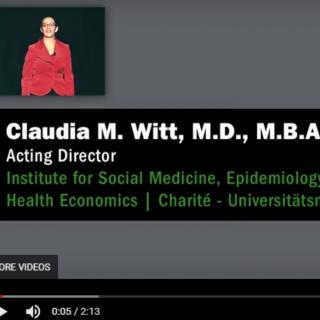
介绍:
Audio(video) from National Center for Complementary and Integratve Medicine:
Claudia M. Witt, M.D., M.B.A.
Dear ladies and gentlemen, dear colleagues. Acupuncture is an absolutely fascinating topic. And on
the same side it’s one of the really highly debated topics. So I’ve just taken some quotes from the US
media here. I could show you plenty of quotes from UK and Germany which are very similar. But as
you see, The Washington Post, the Time magazine, and more recently, The Chicago Tribune, really
come to the point, if acupuncture is more than a sham treatment.
And when we go to cartoons and they are pretty nice cartoons out there, they always come to this
topic. Is it just sham? Can we put the needles wherever we want to put the needles? And even in the
scientific journals, it’s a highly debated field.
So these publication reviews, of reviews by Edzard Ernst and colleagues, came to the conclusion
that there is little truly convincing evidence that acupuncture is effective in reducing pain. Serious
adverse events including death continue to be reported. Not effective and even dangerous.
So, this ended up in a lot of letters to the editor. All bringing up the same topic, that this matter, not
meta-analysis, but this review has not been very methodologically sound. And our comment was the
last one, I wrote it together with Lixing Lao and Hugh McPherson, and we pointed out the point
that they have used a very low level of evidence, single case reports, or so they are large
observational studies on the safety of acupuncture. And the only response we got from the editor
also publishers that we are just acupuncture advocates.
Okay, then I thought, okay no, it’s not anymore on science this is really a political discussion and
tonight, I’m not on a political discussion; I really want to show you the scientific side, the recent
research, so that you really can make up your own opinion based on real data and not on
methodological low reviews of reviews.
大家还在听

